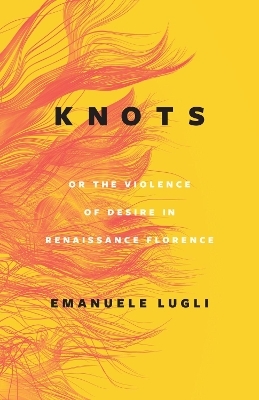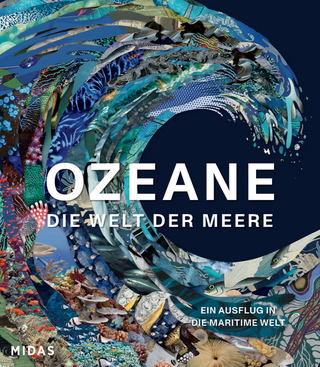
Knots, or the Violence of Desire in Renaissance Florence
Seiten
2023
University of Chicago Press (Verlag)
978-0-226-82251-8 (ISBN)
University of Chicago Press (Verlag)
978-0-226-82251-8 (ISBN)
An interdisciplinary study of hair through the art, philosophy, and science of fifteenth-century Florence.
In this innovative cultural history, hair is the portal through which Emanuele Lugli accesses the cultural production of Lorenzo il Magnifico’s Florence. Lugli reflects on the ways writers, doctors, and artists expressed religious prejudices, health beliefs, and gender and class subjugation through alluring works of art, in medical and political writings, and in poetry. He considers what may have compelled Sandro Botticelli, the young Leonardo da Vinci, and dozens of their contemporaries to obsess over braids, knots, and hairdos by examining their engagement with scientific, philosophical, and theological practices.
By studying hundreds of fifteenth-century documents that engage with hair, Lugli foregrounds hair’s association to death and gathers insights about human life at a time when Renaissance thinkers redefined what it meant to be human and to be alive. Lugli uncovers overlooked perceptions of hair when it came to be identified as a potential vector for liberating culture, and he corrects a centuries-old prejudice that sees hair as a trivial subject, relegated to passing fashion or the decorative. He shows hair, instead, to be at the heart of Florentine culture, whose inherent violence Lugli reveals by prompting questions about the entanglement of politics and desire.
In this innovative cultural history, hair is the portal through which Emanuele Lugli accesses the cultural production of Lorenzo il Magnifico’s Florence. Lugli reflects on the ways writers, doctors, and artists expressed religious prejudices, health beliefs, and gender and class subjugation through alluring works of art, in medical and political writings, and in poetry. He considers what may have compelled Sandro Botticelli, the young Leonardo da Vinci, and dozens of their contemporaries to obsess over braids, knots, and hairdos by examining their engagement with scientific, philosophical, and theological practices.
By studying hundreds of fifteenth-century documents that engage with hair, Lugli foregrounds hair’s association to death and gathers insights about human life at a time when Renaissance thinkers redefined what it meant to be human and to be alive. Lugli uncovers overlooked perceptions of hair when it came to be identified as a potential vector for liberating culture, and he corrects a centuries-old prejudice that sees hair as a trivial subject, relegated to passing fashion or the decorative. He shows hair, instead, to be at the heart of Florentine culture, whose inherent violence Lugli reveals by prompting questions about the entanglement of politics and desire.
Emanuele Lugli is assistant professor of art history at Stanford University. He is the author of The Making of Measure and the Promise of Sameness, also published by the University of Chicago Press.
ONE Prologue: Hair Care
TWO Learning to See Thinness
THREE Desiccated Smoke
FOUR Tie Me Down, Burn Me Up
FIVE Superfluities
SIX Achonciare
SEVEN Never Just Itself
EIGHT Raking the Skin
NINE On the Politics of a Comb
TEN Split Ends: A Conclusion
Appendix: Maps
Acknowledgments
Illustration Credits
Notes
Index
| Erscheinungsdatum | 13.02.2023 |
|---|---|
| Zusatzinfo | 32 color plates, 64 halftones |
| Sprache | englisch |
| Maße | 140 x 216 mm |
| Gewicht | 513 g |
| Themenwelt | Kunst / Musik / Theater |
| ISBN-10 | 0-226-82251-6 / 0226822516 |
| ISBN-13 | 978-0-226-82251-8 / 9780226822518 |
| Zustand | Neuware |
| Informationen gemäß Produktsicherheitsverordnung (GPSR) | |
| Haben Sie eine Frage zum Produkt? |
Mehr entdecken
aus dem Bereich
aus dem Bereich
ein Ausflug in die maritime Welt
Buch | Hardcover (2024)
Midas Collection (Verlag)
CHF 78,00


